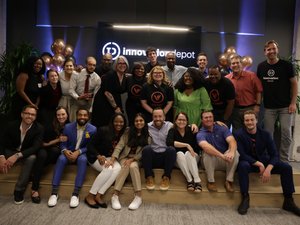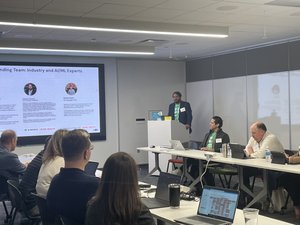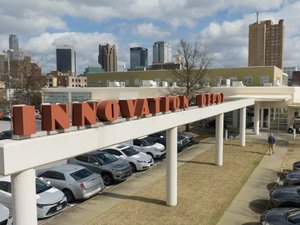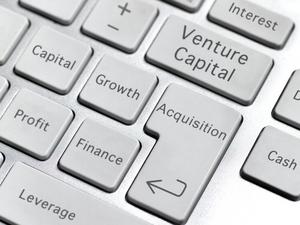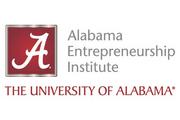
When Patricia Marsh was recruited for the Prosper Healthtech Accelerator program in Birmingham this summer, the thought of uprooting her life and business in Atlanta to move to the Magic City wasn’t even on her radar. But a few weeks into the 12-week program, the founder of patient-focused telehealth platform Ask Me Your MD, also known as AMY MD, is seriously considering relocating to Birmingham from the larger and more established tech and innovation hub of Atlanta.
“The city embraced me and ... accepted me at the word of the accelerator, at the word of the leadership there and at the support level that was already established and growing here in the city,” Marsh said.
Prosper is one of nearly a dozen accelerator programs around the Birmingham metro area. As the city’s startup ecosystem has continued to grow and intensify, local experts say building relationships with larger businesses and corporations is imperative if Birmingham wants to compete with larger markets like Atlanta and Austin, Texas.
With companies like Regions Financial Corp., Vulcan Materials Co. and Shipt based in Birmingham, the city has the potential to see more investment from large market players in smaller startups, thus circulating more funding and strengthening Birmingham’s economic and entrepreneurial standing, leaders say.
Matt Hottle, co-founder and partner of venture capital investment advisory firm Redhawk Advisory, said large local organizations and corporations need to invest in Birmingham’s small businesses, adding that the community needs to hold them accountable through social and business pressure.
“I think it really comes down to expectations for the roles that every organization and every participant plays; we’re allowed to have expectations of companies as consumers, as users, as partners, as community members,” he said. “What are our expectations of corporations to participate more actively or at all? I think that when people start voting with their wallet, they start voting with their choices around who they’re going to do business with, I think that’s the way that things change, but it starts with being very honest with people and saying, ‘I don’t appreciate that you don’t participate.’”
Matt Jaeh, managing director for the Techstars Alabama Energytech Accelerator, echoed Hottle’s desire for more corporate interaction in the local economy.
“It would be nice to see more corporate involvement; there are some Fortune 500 companies within Alabama that do not give back to the entrepreneur ecosystem,” he said. “They don’t see value in it. I think if they were just shown the opportunities that exist within their little local community, they’d be willing to invest in these companies too. Myself and other accelerators, we could probably do a better job interfacing with the local community to share what’s out there, so I think it’s a two-way street.”
As for Marsh, she plans to stay in Birmingham through at least October, when AMY MD will be presenting at the BlueForum conference, produced by BlueCross BlueShield of Alabama. She will then make her final decision on whether to relocate here. Regardless, she said, her experience with the accelerator program exceeded any expectations she had, and she never would’ve considered moving to Birmingham without it.
Birmingham has accelerator programs focused on numerous industries like healthtech, energytech and biotech, as well as programs specifically for historically underrepresented founders like women and minorities, including Techstars Alabama Energytech Accelerator and Bronze Valley Investment Accelerator.
“It’s a really good sign that we have multiple accelerators in Birmingham ... because when you have an entrepreneurial ecosystem that is robust and trying to improve, they help the entrepreneurs there,” said Patrick Murphy, UAB Goodrich chair of entrepreneurship. “In the most absolute sense, it’s a very positive thing.”
By the numbers
Accelerators are projected to play an increasingly important role in venture capital (VC) and investor deal-making momentum in 2024. According to data from PitchBook, there were 4,047 VC deals in 2023, worth a cumulative amount of $403.2 million. As of May 23 of this year, there have been 1,157 VC deals, worth a cumulative amount of $153.3 million.
While the number of annual VC deals has remained steady in the last decade, the cumulative amount of those deals has nearly tripled. The total number of VC deals in 2014 was 3,499 but the cumulative valuation of those deals was only $142.2 million.
Murphy has interacted with and helped curate curriculum for numerous accelerators around the country and emphasized their importance in local business development.
“We need to remember as we think about the positivity of all of this and the potential impact that you’ve got to be really intentional and really smart,” Murphy said. “Just because you’re running an accelerator and you’re not an entrepreneur yourself doesn’t mean you can’t fail like an entrepreneur, but it does mean that you can achieve or realize great high-impact performance outcomes like entrepreneurs do if your accelerator program really hits a few home runs.”
In addition to investing in founders and businesses based in Birmingham, many local accelerators also aim to bring in and recruit founders from other markets. Prosper Healthtech Accelerator, powered by gener8tor, specifically looks outside of Birmingham’s ecosystem for new cohort members, which allows those founders to experience Birmingham — often for the first time — and either relocate their business here entirely, or go back to their home markets as advocates for the innovation that’s happening here.
Hottle said it’s important to introduce out-of-town founders to what Birmingham has to offer. Hottle said about two out of every five founders that go through the Prosper Healthtech Accelerator either relocate to Birmingham temporarily or full time.
“It is absolutely moving the needle from that perspective,” Hottle said. “TechStars doesn’t even really push to relocate and just because people have come here, enjoyed the ecosystem and gotten support that they weren’t getting wherever they were from, they saw a future here and they elected to stay.”
Hottle also said Birmingham accelerator programs play a key role in diversifying the industries that local businesses fall into. Because Birmingham is primarily known for health care, banking and advanced manufacturing, it would be easy for founders to only start companies in those three industries.
“I think the fact that the Birmingham startup scene has resisted being pigeonholed into those three things has done itself a great service, and the accelerators are facilitating that,” he said. “They’re in every kind of industry you can imagine, every market you can imagine, and the majority of those folks are not from here. You bring them in here, you throw them into the soup of the Birmingham startup ecosystem and then you see what comes out at the end and frankly speaking, I think (accelerators) have probably been more catalytic to that kind of growing sophistication and growing success of the ecosystem than maybe anybody else.”
A competitive edge
Marsh went through a pre-accelerator program in Atlanta but said it wasn’t nearly as instrumental in helping her grow AMY MD as the Prosper Accelerator has been.
“I was thinking, ‘Oh, they’ll put me on, they’ll put me in touch with all these people’... No, that was here, at the full-fledged accelerator where they did present you to someone and point you to someone that could take you from where you are and literally accelerate you,” Marsh said. “You’ve got a city that’s ready to glow up and blow up. I could live here; I could grow my business here. I did not know, and I was like ‘what is this hidden gem?’”
PitchBook reports that in the first quarter of 2024, the median pre-seed and seed deal valuations reached nearly $1 million and $3.1 million, respectively; but with the rise in stakes for investors also comes the increased pressure for founders to provide more information and higher metrics.
As small business owners and founders fight a continuously harsher economic climate, accelerators and other startup-focused programs continue to play an important role in getting founders in front of investors and on the pathway to success.
“Just the chance to finally present to the insurance companies is one of the greatest joys and one of the goals that I had written out,” Marsh said. “I wanted that chance because that conversation was invaluable to the trajectory of how we go, if we need to pivot, etc.”
For the accelerators themselves, a continued goal of providing the best curriculum and guidance to business founders seems to be the only immediate call to action from local community members.
“I’ve actually had conversations with people in town who say ‘we don’t need more,’” Murphy said. “I disagree with that; I think everybody needs to try whenever they can to do more because that makes it more likely that the folks who get it right, whether it be a program or an entrepreneurial venture or whatnot, they’re going to have the freedom to try and succeed when somebody tries and fails ... that’s how things evolve.”
What accelerators are:
As described by PitchBook, a platform that provides global data and research on public and private equity trends, accelerators are “active at the earliest phase of venture to bring in capital, expertise, and industry contacts to facilitate growth of nascent companies in exchange for equity at a low valuation.”
In other words, accelerator programs invest in the growth of small businesses through mentorship, curriculum and exposure to industry connections in exchange for a portion of equity from each business.
Accelerator programs can last anywhere from four to 12 weeks long, providing an educational experience for founders to ideate the future of their company, conceptualize and build their first minimum viable product (MVP), pivot their product or business strategy if necessary and better understand concepts like go-to-market strategies.

